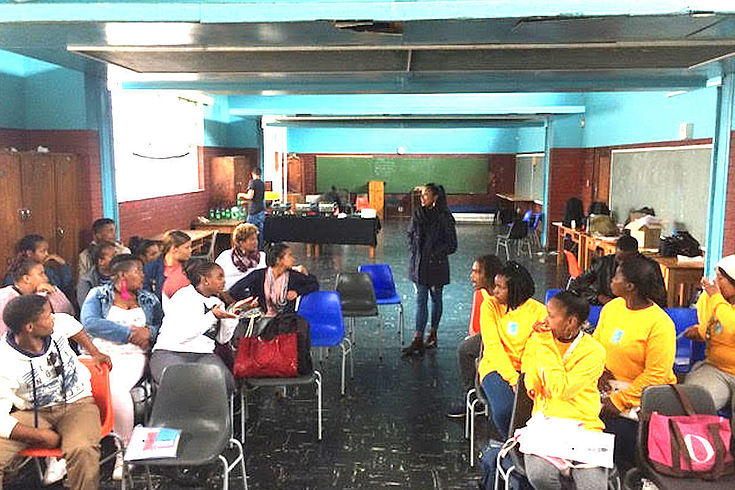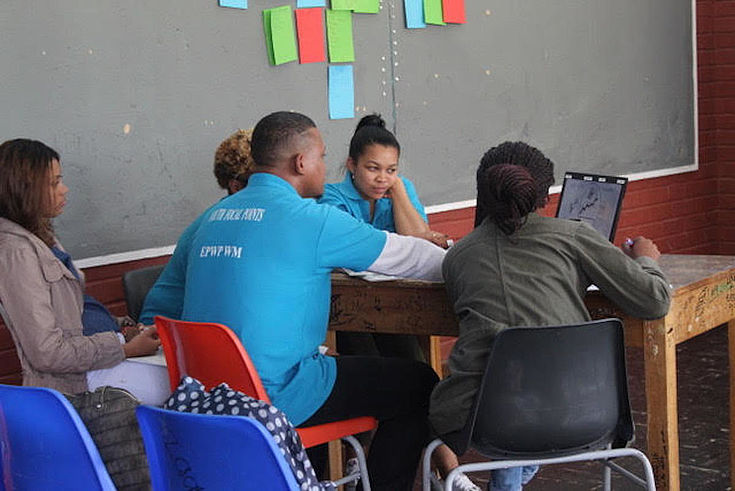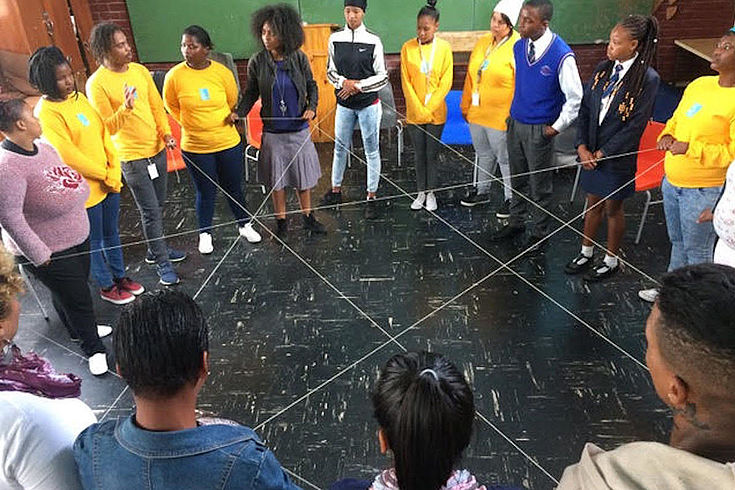Pilot Workshop in Cape Town
“Youth Making Local Government Work”
The workshop, which is the result of a partnership between Civics Academy, Activate, the Tore’s Foundation and the South African Local Government Association, was aimed at young community leaders from the Western Cape region who are actively involved in local governance. The focus of the workshop was to strengthen participants’ capacities to effectively engage local government on the issues affecting their communities including violence, substance abuse and lack of opportunities. The workshop also explored if participants were able and interested to run a similar style workshop in their communities. In addition, all the partner organisations involved could learn about the type of actions young people are already taking to proactively find solutions to the challenges they face. This kind of engagement enables partner organisations to consistently improve their work and tailor the support they provide.

Interactive class session
HSF
About the partnership
Four organisations collaborated in organising this workshop: Civics Academy is an initiative by the Hanns Seidel Foundation which provides free, online civic and democracy educational content, found on www.civicsacademy.co.za Activate is a national network of more than 2000 young leaders driving change for the public good across South Africa (https://www.activateleadership.co.za). One of Activate’s current campaigns called Youth Making Local Government Work promotes young people’s engagement in government and increased accountability in synergy with Civics Academy. The Tore’s Foundation is a UK based Foundation which provides training and resources to implement teaching methods supporting engaged and sustainable communities (http://www.toresfoundation.org.uk/). The South African Local Government Association (SALGA) is a national association of all 257 local governments. Its mandate is to represent, promote and protect the interests of local governments. Tore’s, Activate and SALGA mobilised and recruited the +/- 30 participants. Many of the participants were also associated with the Communiversity of South Africa, which is a pre-college, community-based education initiative. All the partner organisations contributed to make the pilot possible and successful.

Watching Civics Academy video in a small group
HSF
The Program
The program, which Activate and Civics Academy co-designed, began with a session in which participants reflected on the challenges they face in their communities. Identifying the local governance aspects of these challenges created the basis for appreciating the importance of understanding and engaging in how local government works. Using a combination of Civics Academy Local Government videos and Activate’s interactive training methodologies, the workshop invited participants to delve deeper into what local government is; who the various role players are; and what different avenues exist to hold them to account. The workshop also included a session where participants shared what actions they are already taking to make local government work. To sum up the two days, the workshop closed with small groups presenting road maps illustrating how they could address the challenges they identified in the beginning.
“I learnt that I can go directly to [the local councillor] and let him know. I didn’t know [I could] make that step but now I know so I will go to that [councillor].”
The Civics Academy Local Government videos were made available on cell phones and laptops through Eduze’s CLOX. The CLOX is an offline platform through which digital content can be viewed on up to 30 devices without incurring any data costs (www.eduze.com).

Group work in a circle
HSF
Key learning outcomes
As this workshop was a pilot, the partners now have the opportunity to refine and develop the program and its delivery based on reflection on these two days.
The energy and enthusiasm of the participants made the program a success. Because they were already active citizens in their communities, the program had special relevance to them. Their interaction with the content was remarkable.
“It is us that have to raise the issues and place it on the agenda and then follow up on the issues through the local government structures.”
Despite the fact that the participants were already engaged in local government, there was a great need and desire to deepen the understanding on what local government issues are and how this sphere of governance works.
Facilitators identified the need to create a link between local, provincial and national government issues and the 2019 national elections. National government initiatives that speak to the local sector should be highlighted. This can create the awareness that in addition to engaging local government directly, active community members can demand accountability for local government issues through national and provincial initiatives and structures during and after the national elections.
Many participants requested for this program to be offered in their communities. For participants to hold similar workshops in their communities they would need further training and resources.
Most participants reflected positively on the Civics Academy video material. The video material would benefit from exercises such as quizzes to maintain focus during the sessions.
“I think the videos are excellent and can definitely be used in the future.”
In conclusion, the workshop was a success in the sense that participants did gain a better understanding of local government. While this initiative requires further development, it is clear that the partner organisations complemented each other in their approaches, resources and expertise, which is key to developing a program suitable for a national roll out.
